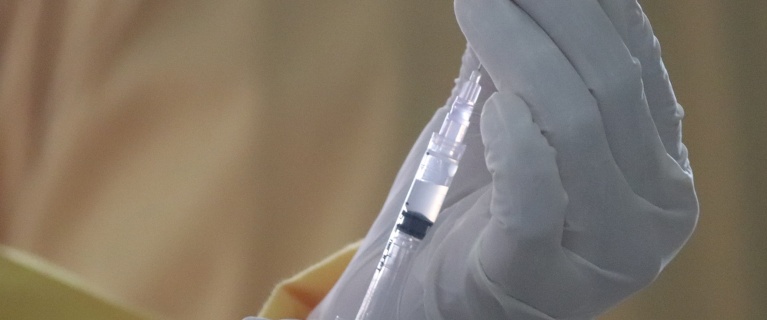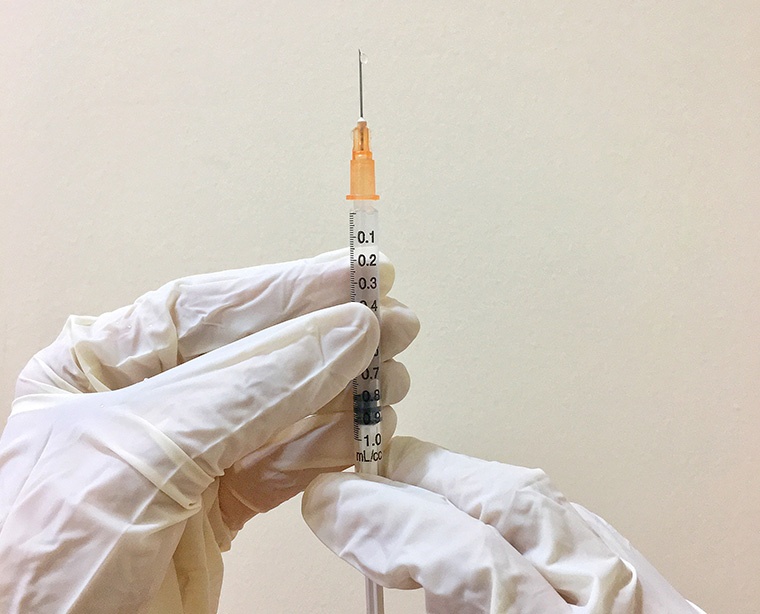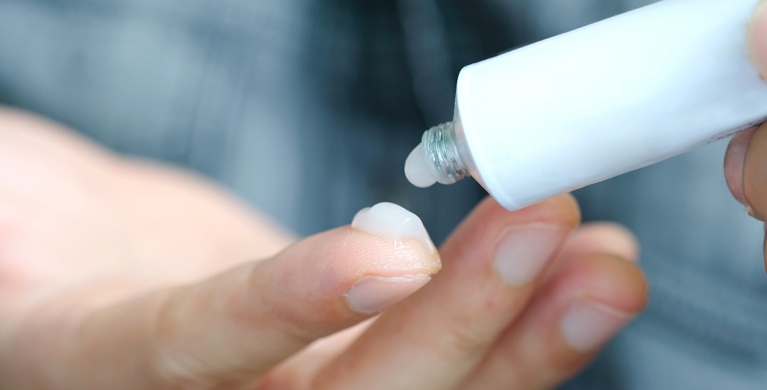

Biotherapies: new treatments for atopic dermatitis

When it comes to biotherapy, we are not talking about chemistry but about treatments of biological origin: DNA, cells, proteins, or even antibodies used to block the inflammation linked to atopic dermatitis.
How biotherapies work in atopic dermatitis
Eczema or atopic dermatitis is an inflammatory disease caused by unusual reactivity of the skin to various factors such as substances that penetrate the skin. This inflammation is the result of chain reactions involving various molecules, including interleukins, whose role is fundamental in triggering and maintaining inflammation.
It is therefore necessary to intervene as closely as possible to interrupt this mechanism that leads to inflammation by blocking one or more of these molecules that are involved in the chain of reactions.
Treatment with injections of specific antibodies (so-called monoclonal antibodies) prevent the body from producing too many pro-inflammatory interleukins. These antibodies are able to block specific interleukin receptors to prevent their production and thus break the chain of inflammatory cascade reactions.
Are there biotherapies available today to treat atopic dermatitis?
A first monoclonal antibody has received marketing authorization in Europe for the treatment of moderate to severe atopic dermatitis after failure of other treatments. It is used as a subcutaneous injection.
But many other antibodies as well as small molecules are currently being studied.
Who are biotherapies for?
This type of therapy is used when local treatments such as topical corticosteroids and topical immunosuppressants as well as other general treatments have failed and the patient's quality of life is severely impaired. They are therefore used for moderate to severe atopic dermatitis (SCORAD >40).
They can only be prescribed in hospital, with a special prescription.
Are biotherapies effective in atopic dermatitis?
Monoclonal antibodies targeting interleukins of the inflammatory chain offer, along with other new treatments for atopic dermatitis, genuine hope for patients whose therapy has not worked and who are really suffering. The clinical trials carried out in the context of obtaining marketing authorization have enabled these treatments to be tested on a large number of patients.
However, it is important to keep in mind that atopic dermatitis cannot be "cured": treatments can relieve the symptoms without being able to treat the cause.
Side effects of biotherapies
The clinical trials carried out as part of the process of obtaining marketing authorization have been carried out on a large number of patients. However, there is no treatment that does not have any listed possible side effects. For the monoclonal antibody currently on the market, the most common side effects are conjunctivitis and hypereosinophilia (change in blood count). Medical follow-up is necessary to adjust the treatment according to the extent of the side effects.

